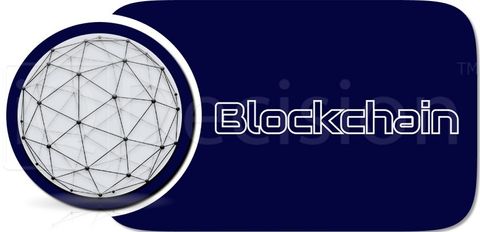Nowadays, information overload is one of the problems of the modern world. And the way to effectively separate true and false information and keep it so that it is completely accessible is a blockchain.
What is this?
Politicians, financiers and ordinary citizens criticizing Bitcoin and other cryptocurrencies do not understand or do not want to understand the global concept of blockchain technology. It will be impossible to complete the process of merging national markets without switching to a global currency that must be fully decentralized. The emergence of electronic money based on blockchain technology is quite natural and is the next stage in the development of our civilization.
However, the technology of storing information in the form of a sequential chain of blocks can be used not only in payment systems. So what is a blockchain in plain language?
Initially, the purpose of cryptography was to protect data for transmission using encryption so that only those recipients who knew the "key" could decrypt the data and use it. Encryption ensures the integrity and confidentiality of data. However, with the help of the key to the cipher, you can not only view the information but also make changes, which can violate the reliability and integrity of the data. Now, thanks to Blockchain, the data is still protected, but the technology is keyless. Instead, it allows you to view data without the right to make changes. To understand how this works, we can imagine that blockchain technology uses a "chain" of "blocks" of links.
Each block consists of coded transaction information. Blocks are passed to "nodes", which receive the blocks, check them and add them to the chain of records.
The basis of cryptographic protection is hashing, without it, no blockchain ecosystem can function. Hashing is performed according to a special algorithm and is a check of the integrity of digital or alphanumeric messages. Simply put, in a blockchain, all messages are encrypted by senders. The hash code is passed in a chain from the sender to the receiver, passing check on nodes of a blockchain network. Data transfer is irreversible, after the message is sent and confirmed, it cannot be canceled.
The information about the executed transactions is permanently recorded in the blockchain. Attempting to rewrite the information in one of the blocks will have a domino effect, it will be necessary to make changes to all subsequent blocks of the chain. The protocol in blockchain technology requires confirmation of operations by independent regulators. And if at least one of them rejects changes in the structure of the blocks, the process will be blocked and the changes will be rejected.
The term blockchain for teapots is deciphered something like this: "Blockchain is a technology that allows network users to reach a consensus, without the need for full trust and external control."
Example of using a blockchain
The simplest example of using a blockchain is buying a valuable product:
- The block stores information about who and what is involved in the transaction. The information is encrypted using a digital signature, so no personal information is involved.
- Each block has a "hash" that allows you to identify this block. The block is "published" on the node and is part of a structured "blockchain".
- The chain of blocks is stored in chronological order.
Advantages of Blockchain:
- anonymity;
- security and trust in the linear chain and hash, as blocks are difficult to edit and the hash is updated each time the record changes;
- the blockchain can remove the "intermediary" from the transaction, depending on how the ledger is installed;
- versatility - technology can be used in many areas.
The blockchain register can be:
- decentralized or publicly available (cryptocurrencies);
- centralized with a supervisor or intermediary.
Today, Blockchain is mostly associated with cryptocurrencies. For example, Bitcoin adopts a decentralized model that is resource-intensive in terms of power and computer use. At the same time, other uses of Blockchain are emerging.
Legal assistance
To open a crypto business in the UK or register a fintech company in Europe, you can contact the specialists of IQ Decision UK. Qualified legal advisors will conduct an individual blockchain consultation for your business and provide the full range of necessary professional services.










